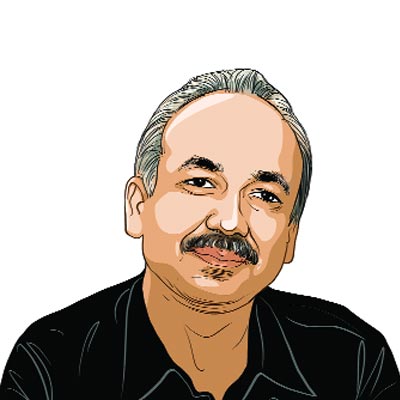Opinion The 45-day manoeuvre
Baburam Bhattarai races against his own clock
The Baburam Bhattarai governments countdown began on August 28,the day he became prime minister. A man in a hurry,and perhaps over-confident in his ability to deliver,he asked for a mere 45 days to complete the peace process. He managed to get Prachanda,chairman of his party,by his side,in the hope that together they would crush any dissent among the Maoists. In other words,Prachanda is expected to take disciplinary action against their partys senior vice-chairman,Mohan Baidya Kiran,a Bhattarai rival,if their current opposition creates a crisis for the government.
Bhattarai will be leaving for New York to participate in the annual General Assembly meeting of the United Nations later this month,a day after the meeting of the Maoist central committee has been scheduled to discuss the intra-party rift thats arisen after the keys to the weapon containers under Maoist possession all these years were handed over to a parliamentary committee. Baidya continues to maintain that the decision amounts to a total surrender of,and insult to,the combatants. On his return from New York,Bhattarai may be in New Delhi on an official trip,and in all likelihood the central committee meeting may have to be deferred well outside the 45-day timeframe.
But dissent within the party is not the only challenge to Bhattarais leadership. Cabinet ministers Jaya Prakash Gupta and Rajendra Mahato,from two Madhes-based parties,expressed their dissatisfaction over the functioning of the government,and raised doubts over its efficiency. Bhattarai had to backtrack on one of the four points in the deal the chiefs of the Maoist party and United Democratic Madhesi Front (UDMF) constituents had signed on August 28 as the priority agenda of the coalition government. Bhattarai told a delegation of human right groups that the government would not be withdrawing human right violation cases against the Maoist cadres filed during the years of conflict,and will instead have them referred to the Truth and Reconciliation Commission that his government would be forming soon. This is something that may embarrass Prachanda,the man who signed the deal and who may not be able to defend Bhattarai for too long. But crises are not confined to the home-front alone.
Human rights issues will be an important aspect of his interaction with US and Western diplomats during his visit to New York. Some WikiLeaks disclosures now have projected Bhattarai as a ruthless votary of violence who has been quoted as saying that any killing is justified under the law of war that goes totally against the current impression of the international community about Bhattarai being a liberal democrat,much more moderate than Baidya and Prachanda. Bhattarai has neither reviewed nor retracted the statement. The disclosure,however,shows that the UCPN-M was playing its cards well with a much better understanding of politics in India and the US the two countries that thought they would influence Nepals internal politics greatly to suit Maoist interests,and chose appropriate persons for that.
Three years after elections to the constituent assembly,Bhattarais test lies in whether he can institutionalise Nepals identity,bring stability and restore a semblance of public security. Indian Ambassador Jayant Prasad said recently that he was hopeful of the constitution being delivered by the new deadline (November-end) if the peace process is completed under Bhattarai.
But with dissidence among the Maoists,with coalition partners already questioning Bhattarais efficiency,and with the prime minister yet to show to the world which cap that of an uncompromising ideologue or a pragmatic and accommodating democrat he is likely to don,the crown on his head does not look that stable. Prominent civil society leader and former speaker Daman Nath Dhungana has warned that Bhattarais failure will be Nepals failure with the plea that he should be given more time. But the prime minister finds himself trapped by the over-ambitious 45-day timeframe that he set for himself,in an atmosphere where politics and leaders stand discredited more than ever.


